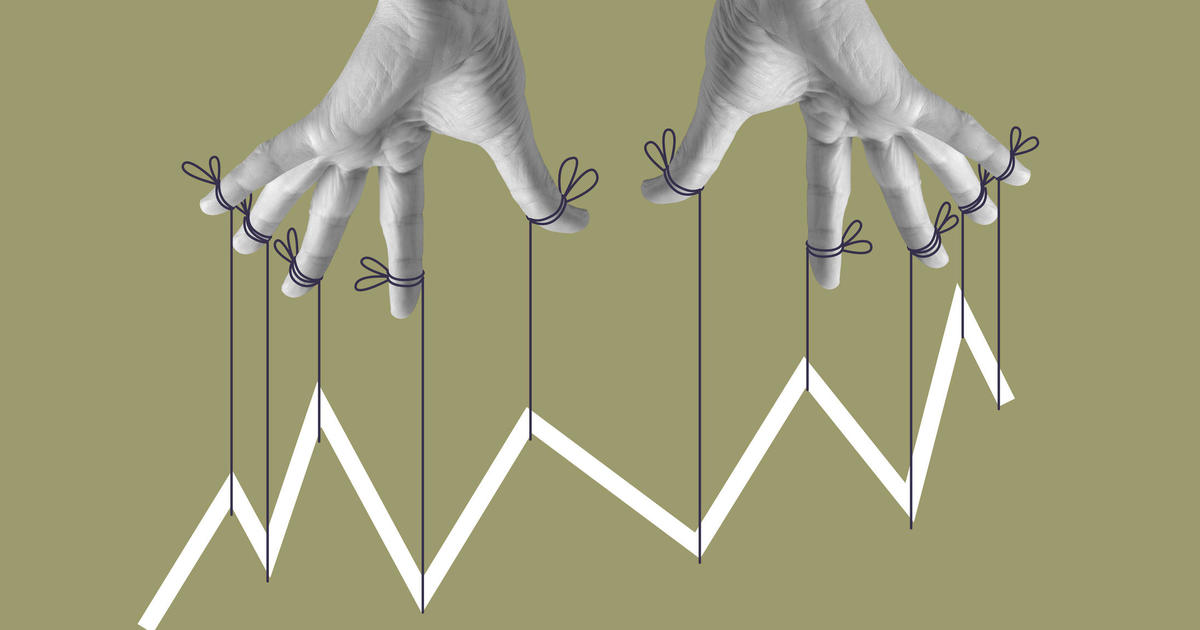Stocks close mostly lower Friday after strong jobs data offers good, bad news for investors
Stocks swung lower Friday following a blockbuster report on hiring in July which offered both good and bad news for Wall Street.
The S&P 500 was 0.2% lower after recovering from an earlier loss of 1.1%. U.S. employers added hundreds of thousands more jobs than expected last month, suggesting the economy may not be in a recession, as feared. But the better-than-expected hiring data also undercuts investor hopes that high inflation may be close to peaking, meaning the Federal Reserve may not let up on its aggressive rate hikes to combat it.
"After a few weeks of strong performance, 'safe' and 'risky' assets have both generally sold off today after the strong U.S. payrolls data," James Reilly, assistant economist with Capital Economics, said in a report. "We expect this to continue over the rest of 2022."
The Fed has raised its benchmark rate twice by 0.75 percentage points this year, the biggest hikes since the early 1990s, along with implementing two other rate hikes this year.
Tech stocks and other high-growth companies once again took the brunt of the losses amid the rising-rate worries, and the Nasdaq Composite fell 0.5%.
The good news on the jobs market helped raise the Dow Jones Industrial Average, whose stocks tend to move more with expectations for the overall economy than with rate expectations. It was up 0.2%, or 77 points, at 32,803.
In the bond market, Treasury yields shot higher as traders scrambled to place bets for bigger hikes coming out of the Fed's meeting next month. Such increases hurt investment prices in the near term, and they raise the risk of recession further down the line because they slow the economy by design.
Beyond the nation's strong hiring, wage growth for workers also unexpectedly accelerated last month. That raised fears inflation will become more embedded in the economy. Higher wages can cause companies to raise prices for their own products to sustain profits, which can lead to something economists call a "wage-price spiral."
"With the unemployment rate down in July and payrolls rising robustly, there is little reason to think the Fed will back off on interest rate hikes in the near term," Bill Adams, chief economist for Comerica Bank said in a research note.
Job strength overstated?
To be sure, some market watchers also pointed to numbers within Friday's employment report suggesting the jobs market may not be as strong as the overall numbers imply. The number of people with multiple jobs rose by more than half a million, for example, said Brian Jacobsen, senior investment strategist at Allspring Global Investments.
"That was mostly from people who already have a full time job and then the second job is part time," he said. "Maybe this is more superficially impressive than substantively impressive."
Wall Street is coming off the best month for stocks since late 2020, a rally driven mostly by falling yields across the bond market. The hope on Wall Street had been that the economy was slowing enough to get the Fed to ease up on its rate hikes.
Higher mortgage rates had cut into the housing industry, in particular, after the Fed raised its short-term rates four times this year. The last two increases were triple the usual size, and the Fed has raised its benchmark overnight rate off its record low of nearly zero by 2.25 percentage points, or 225 basis points as Wall Street calls it.
"The strength of the labor market in the face of 250 basis points of rate tightening from the Fed already this year clearly shows that the Fed has more work to do," said Charlie Ripley, senior investment strategist at Allianz Investment Management.



